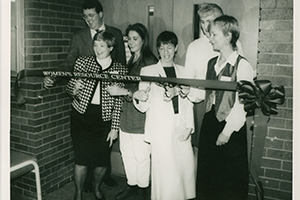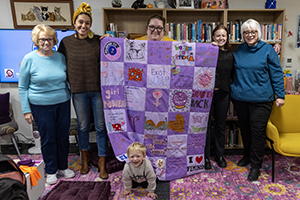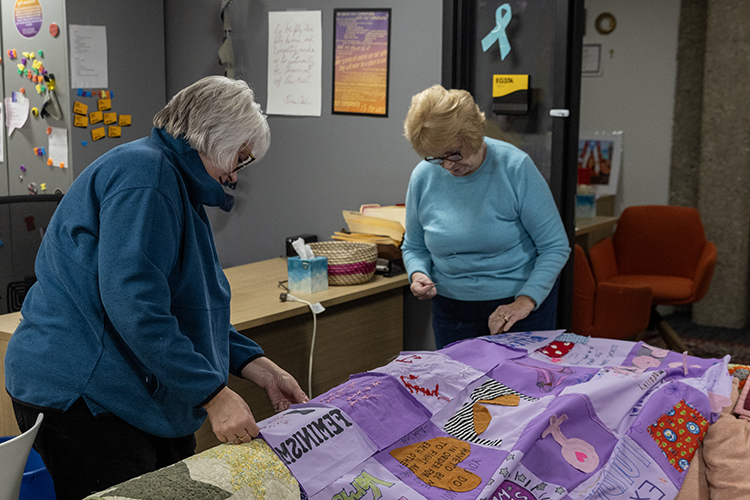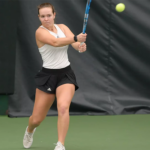In the final decades of the 20th century, female faculty, staff and students at UWM focused on key issues that impacted them. Child care, family leave, campus safety and security, and sexual harassment and assault, as well as equity in pay and tenure, all were critical, according to the chapter on women in the UWM history “Telling Our Stories: A History of Diversity at UWM.”
Among the tangible results were the establishment of the Children’s Learning Center, B.O.S.S. transportation vans and victim advocacy.
Much of that early effort in the 1970s and 1980s came from the faculty and staff, although several student groups organized to advocate for issues important to women.
In 1993, student government decided to establish and fund a center focused on the needs of female students. Cathy Seasholes, now retired from UWM, answered an ad in a Madison newspaper and came to UWM in September 1993 to help organize the center. The Women’s Resource Center opened two months later and soon became a model for other student-focused centers, according to Seasholes.

At the time, “there was lot of interest nationally and locally on gender inequities and the needs on campus, but it was primarily focused on faculty,” Seasholes said.
The Women’s Resource Center is holding its 30th anniversary celebration Nov. 10 from 6-10 p.m., with dining and dancing in the Wisconsin Room in the UWM Student Union. Merry Wiesner-Hanks and Gwynne Kennedy, who wrote the chapter on women at UWM for the history of diversity book, are among those attending. An awards program will recognize women’s achievements at UWM. A group of women, nominated by colleagues and friends, are being honored.
Seasholes, founding director and leader of the center for 21 years, is one of those whose work will be acknowledged.
“We want to honor all the things she did to advance gender equity on campus and support the Women’s Resource Center,” said Kacie Otto, director of the center.
The center focuses on services and educational events especially important to women.
Among those services are providing information on pregnancy prevention, safer sex, violence prevention and advocacy for women who have been victims of violence or harassment. The center also helps provide support for students who are also caregivers. In addition, the center offers free menstrual hygiene products, birth control supplies, a lending library and connections to campus and community resources.

During the first three weeks of September as classes started this year, Otto estimated that more than 500 female students stopped in looking for resources or to attend events. “We’re very proud of reaching that many people,” Otto said. The center is also open for informal gatherings, giving people a chance to meet others with similar interests around campus.
The center also does educational programming, often with sister centers like the Women’s & Gender Studies area or the Center for 21st Century Studies. Among the examples are the Take Back the Night rally for survivors of violence or sponsoring the Distinguished Lecture Series talk by Mae Jemison, an astronaut and first woman of color in space.
A fiber arts program explored the history of textile arts, showcasing women’s activism around fiber arts. Working with Women’s & Gender Studies and the Center for 21st Century Studies, the center helped create a quilt focused on reproductive justice, which now hangs in Curtin Hall.
In celebration of the 30th anniversary, the center is creating a new quilt with 30 squares designed by students and staff with the quilters showcasing how they were affected by the center.






